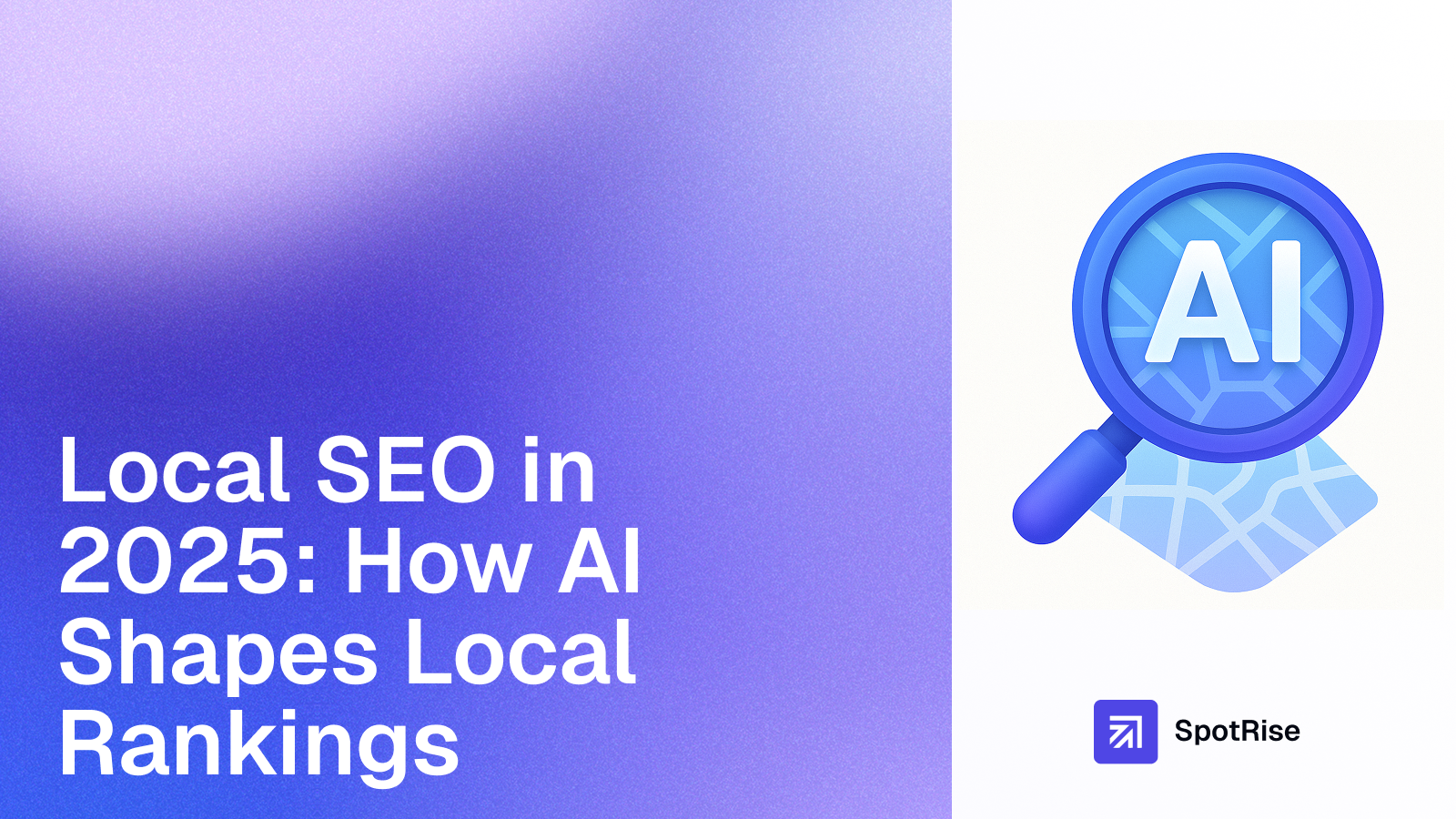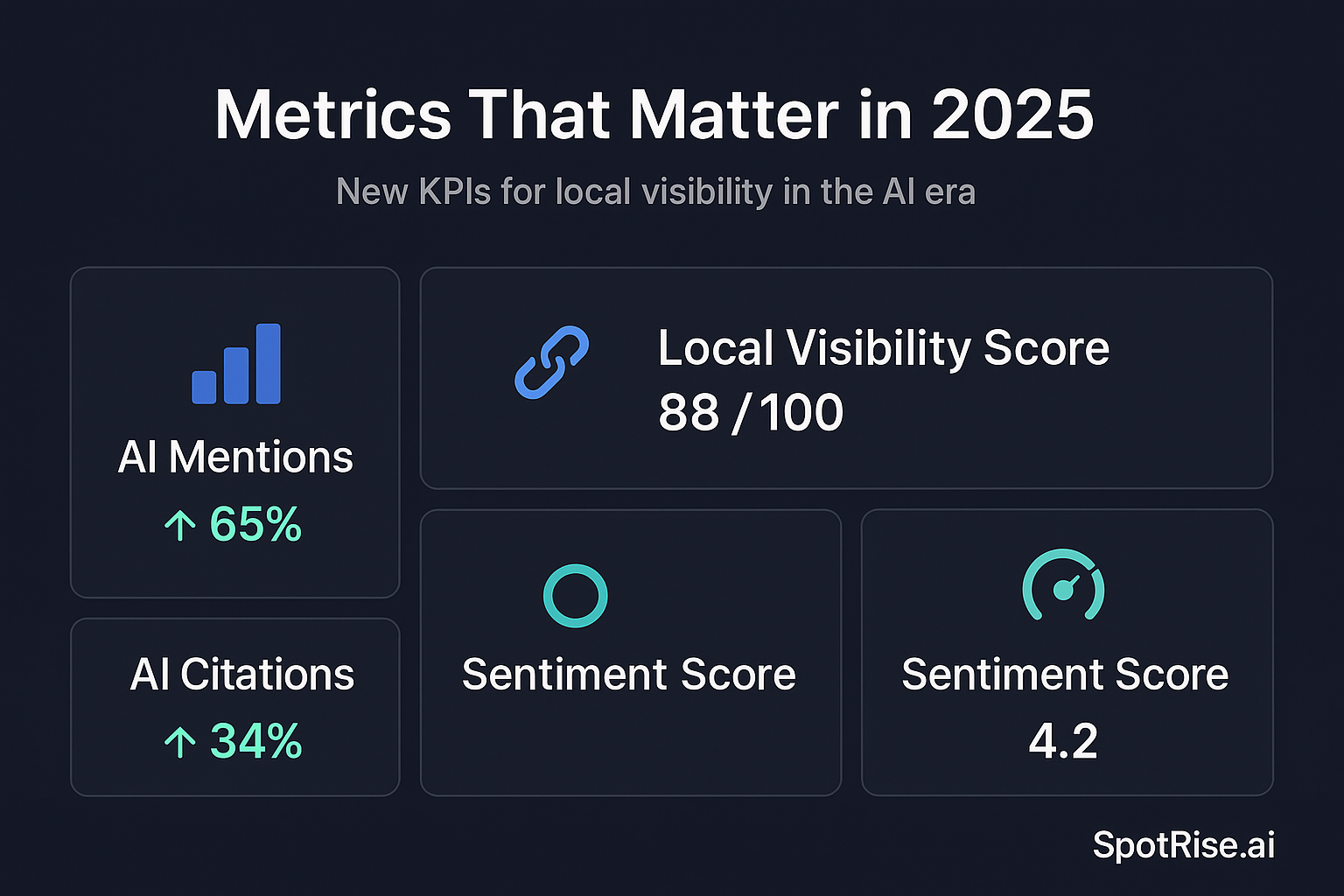January 8, 2026
Understanding the Google Core Update of December 2025: What It Means, Who It Affects, and How to Respond
January 8, 2026
Generative Engine Optimization (GEO): The Complete Guide to Ranking in AI Search
January 8, 2026
Author:

Local SEO has always been about proximity optimizing Google Business Profiles, building citations, and gathering reviews to appear in the top three map results. But in 2025, that playbook is being rewritten by AI-driven personalization and context-aware search.
AI systems like Google’s Search Generative Experience (SGE), SearchGPT, and Perplexity are transforming local discovery into a predictive experience. Instead of showing the same results to everyone in a city, search engines now tailor responses to each user’s intent, behavior, and history. The query “best coffee near me” no longer returns the closest shop. It surfaces the place most aligned with your preferences, schedule, and even sentiment toward past visits.
This evolution means Local SEO is shifting from location-based to context-based optimization. The goal is no longer just to appear on the map, but to be selected by AI as the most relevant local entity. In 2025, the future of local visibility belongs to brands that optimize for personalization, structured data, and trust signals — not those that rely solely on backlinks and proximity.
Local SEO has gone through three major phases — each driven by a shift in how users search and how algorithms interpret location, intent, and trust.
Local SEO began with simple mechanics: NAP consistency (Name, Address, Phone) and business directory listings. Ranking well meant being present in Google My Business, Yelp, and local aggregators. Visibility was binary — either your data matched across sources, or it didn’t.
Google integrated user behavior and reviews into its local ranking model. “Near me” searches exploded, and the algorithm prioritized proximity, star ratings, and engagement. Businesses optimized photos, keywords in reviews, and local posts to push ahead.
Search shifted from matching keywords to understanding entities — people, places, and organizations. Google’s Knowledge Graph, AI-based review analysis, and local intent detection evolved fast. Voice assistants and mobile queries began reshaping how users discover nearby services.
Now, in 2025, AI understands context more than coordinates. Search engines infer your intent — not just “where you are,” but what you need right now.
The game has changed: local optimization is no longer about being the closest — it’s about being the most contextually relevant and semantically consistent source.

AI has completely redefined how local rankings are calculated. Instead of static algorithms that treat all users equally, search engines now interpret who is searching, what they actually mean, and which entity best satisfies that intent. The new ranking logic blends data science, behavioral modeling, and semantic understanding creating results that feel personal rather than generic.
Traditional local SEO relied on keyword matching and geographic proximity. Today, AI-driven systems such as Google’s SGE, SearchGPT, and Bing Copilot use semantic understanding. They analyze full user context, not just the query text.
For example:
The algorithm no longer guesses intent — it predicts it.
AI doesn’t “rank” pages, it selects and summarizes sources that best answer a personalized need. The main factors now influencing inclusion in AI-driven local results include:
In this new ecosystem, “ranking” means being referenced. AI search engines decide which businesses or sources to mention, quote, or highlight. Sometimes without showing links at all. That makes AI visibility the new metric of success: your goal isn’t just to appear high in the map pack, but to become the default recommendation generated by AI.
In other words, you’re optimizing to be trusted — not just indexed.
AI assistants are becoming the new gateway to local discovery. Users no longer need to open Google Maps or type “near me” — they simply ask ChatGPT, Siri, Bing Copilot, or Perplexity for a recommendation, and the assistant delivers a direct, context-aware answer.
This shift means that local visibility now depends on how easily an AI can interpret, summarize, and trust your business data. Instead of competing for SERP clicks, you’re competing to be the spoken or generated answer inside an assistant’s response.
Each platform pulls data differently:
To appear in these results, your business must be machine-readable and semantically clear — assistants don’t “browse” your site, they understand it.
AI assistants interpret queries the same way humans speak — which means your content must reflect natural language and question-based intent.
Best practices:
AI models treat every business as an entity — a structured object with attributes like name, address, reviews, and categories.
To increase visibility:
As AI assistants continue to dominate how users search locally, businesses that embrace conversational structure and machine-readable data will become the default answers — not just results.

No matter how advanced AI search becomes, data consistency remains the foundation of Local SEO.
AI systems reward accuracy and coherence across all data sources — because trust is algorithmic.
Key principles:
Even one outdated phone number or conflicting opening hour can signal unreliability — and lead to your business being ignored by AI models.
The KPIs of Local SEO are evolving. Rankings alone no longer tell the full story — AI visibility metrics now define success.
New Core Metrics:
Example: SpotRise.ai dashboards visualize all these metrics in one view — tracking AI exposure just like keyword rankings were tracked in traditional SEO.

Together, these indicators reflect how visible, trusted, and contextually relevant your business is inside the AI-driven local ecosystem.
Even experienced marketers make outdated moves that limit their AI visibility.
Avoid these pitfalls:
The AI web rewards structure, truth, and freshness — not keyword tricks or shortcuts.
AI no longer needs users to say “near me.” It already knows who you are, where you are, and what you likely need next.
The next chapter of Local SEO is Local Experience Optimization (LXO) — building a full ecosystem of trust across touchpoints, from search to satisfaction.
The mindset shift:
AI will reward authenticity, freshness, and data precision — not hacks.
Businesses that evolve from SEO to LXO will own the new local landscape — where algorithms don’t just find you, they choose you.
Your new AI assistant will handle monitoring, audits, and reports. Free up your team for strategy, not for manually digging through GA4 and GSC. Let us show you how to give your specialists 10+ hours back every week.
Read More

January 8, 2026
10 min

January 8, 2026
10 min

January 8, 2026
10 min
Just write your commands, and AI agents will do the work for you.